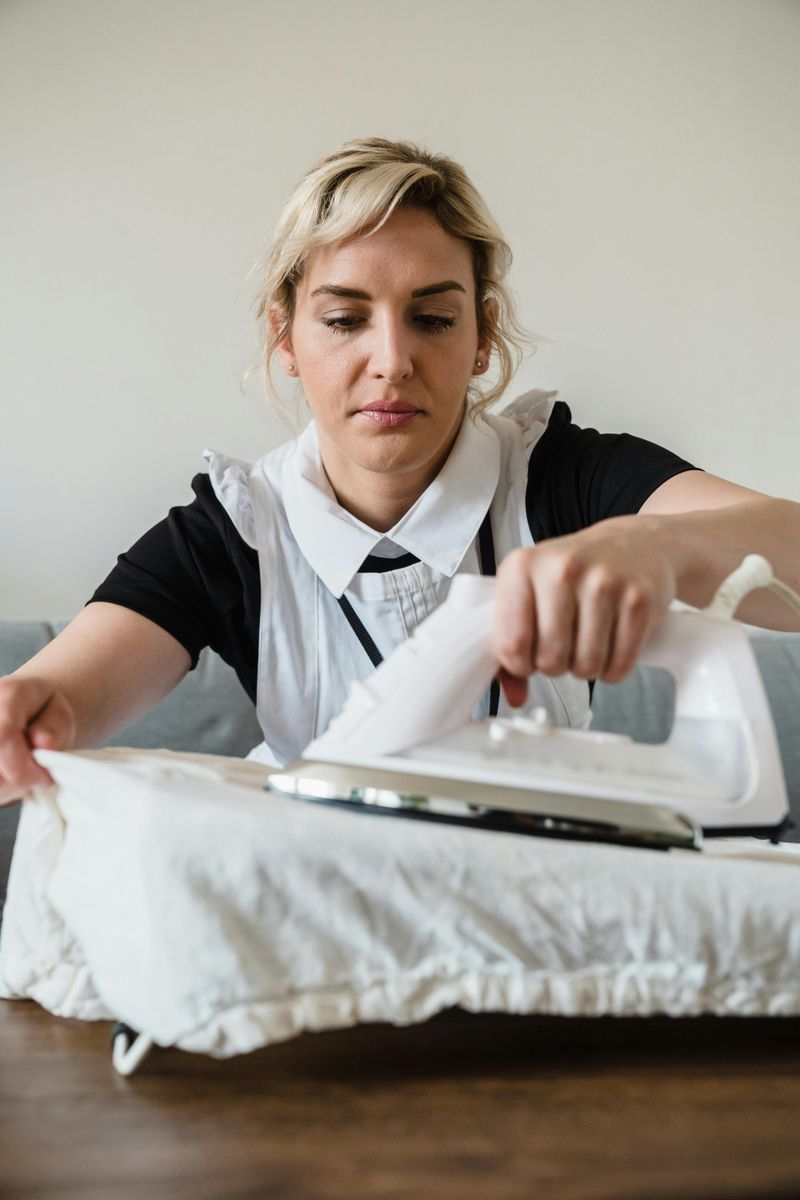12 Obsolete Skills That Were Once Considered Signs of “Being an Adult”

In the past, adulthood came with a set of skills that were considered essential for everyday life. However, as technology and societal norms have evolved, many of these skills have become obsolete. Here’s a look at 12 such skills that once defined adulthood but are now largely forgotten.
1. Balancing a Checkbook

Balancing a checkbook was once a hallmark of financial responsibility. Adults meticulously tracked their spending and deposits, ensuring their accounts stayed accurate. This task required patience and an eye for detail, as even a small mistake could lead to significant financial issues.
Today, mobile banking apps have taken over this role, automatically updating transactions and balances in real-time. The skill of manually balancing a checkbook has become rare, as digital tools provide a more convenient and error-free method of managing finances.
Despite its decline, balancing a checkbook taught valuable lessons in money management that are still relevant in today’s digital age.
2. Using a Landline or Rotary Phone

Navigating a rotary phone was once a rite of passage into adulthood. Understanding busy signals, wrong numbers, and the art of phone etiquette was crucial. These phones, with their distinctive ring and tactile dialing, connected people long before the era of smartphones.
Today, the convenience of mobile phones has replaced the need for landlines. Contacts, messages, and calls are at our fingertips, making the rotary phone a nostalgic relic.
Although obsolete, using a rotary phone required a level of patience and skill that reflected the slower pace of communication in the past.
3. Writing Checks

Once the standard method of payment for everything from groceries to utility bills, writing checks was a skill that required accuracy and trust. People needed to know the exact format, including how to write out amounts in words.
Today, digital payments and online banking have made this practice almost unnecessary. Transactions are quicker and more secure with electronic systems.
Despite its decline, check writing taught individuals the importance of precision and accountability in financial transactions—a lesson that remains vital in any form of payment.
4. Sewing and Mending Clothes

Sewing and mending clothes were once essential skills passed down through generations. Adults were expected to fix torn garments or replace missing buttons as a sign of self-reliance and resourcefulness.
In today’s world, fast fashion and inexpensive clothing have reduced the need for these skills. People often opt to replace rather than mend, driven by convenience and cost.
Though less common, the ability to sew and mend remains a valuable skill, promoting sustainability and creativity in an era of disposable fashion.
5. Reading a Paper Map

Reading a paper map was once an essential skill for travelers and adventurers. It required spatial reasoning, attention to detail, and a sense of direction to navigate unfamiliar places.
The advent of GPS and smartphone navigation apps has rendered paper maps almost obsolete, providing real-time directions with ease and accuracy.
Despite this, reading a paper map instilled a deep understanding of geography and a sense of adventure that digital maps sometimes lack. It’s a skill that connected people with the world in a tangible way.
6. Cooking Entire Meals from Scratch

Cooking meals from scratch was once a daily routine, showcasing culinary skills and creativity. Preparing everything from scratch meant understanding ingredients, techniques, and flavors.
Today, meal kits, takeout, and convenience foods have made home cooking less of a necessity. People often prioritize speed and simplicity over traditional cooking.
While it’s become less common, cooking from scratch fosters connection, creativity, and self-sufficiency. It remains a rewarding skill, offering a sense of accomplishment and the joy of sharing homemade meals.
7. Typing on a Typewriter

Mastering the typewriter was once a rite of passage for office workers and writers. The clacking keys and the rhythmic return of the carriage were the soundtrack to productivity.
With no backspace, it required precision and focus, as mistakes meant starting over. Today, computers and word processors offer endless editing possibilities, making the typewriter a nostalgic artifact.
Although outdated, typing on a typewriter encouraged a level of concentration and skill that digital tools have transformed, yet sometimes fail to replicate in their ease and convenience.
8. Formal Letter Writing

Letter writing was once an art form, reflecting one’s education and etiquette. Formal letters were used for everything from business correspondence to thank-you notes, each crafted with care and precision.
In the digital age, emails and instant messages have replaced handwritten communication, offering speed and convenience.
While less common, the art of letter writing taught the value of thoughtful communication and personal connection. It remains a meaningful gesture, capturing sentiments that digital messages sometimes fail to convey.
9. Ironing Clothes

Ironing was once a standard part of adult life, ensuring a polished appearance. Understanding the settings and techniques for different fabrics was essential for presenting oneself professionally.
Today, wrinkle-free fabrics and casual dress codes have made ironing less necessary. Many people choose more relaxed or convenient clothing options.
Though less practiced, ironing remains a skill that enhances confidence and presentation. It’s a reminder of the attention to detail that defined professional and personal standards in the past.
10. Using Analog Clocks

Telling time on an analog clock was once a fundamental skill. Understanding the positions of hands and the passage of time taught both patience and precision.
Digital clocks and smartphones have simplified time-telling, making analog clocks seem less relevant to the younger generation.
Despite this shift, analog clocks offer a connection to time that is both visual and tactile. They encourage a moment of reflection, contrasting the immediate nature of digital displays.
11. Home Repairs and Maintenance

Home repairs once defined self-sufficiency. From fixing leaky faucets to replacing fuses, adults were expected to maintain their homes with basic skills and tools.
Today, many people rely on professionals or online tutorials for repairs, prioritizing convenience over learning these skills firsthand.
Despite modern solutions, home repairs foster independence and a deep understanding of one’s living space. They remain valuable skills, offering satisfaction and empowerment through hands-on problem solving.
12. Balancing a Household Budget by Hand

Balancing a household budget by hand was once a cornerstone of financial maturity. People meticulously tracked income and expenses in ledgers, ensuring they lived within their means.
Budgeting apps and digital tools have streamlined this process, offering automated solutions that make manual tracking seem cumbersome.
Yet, this skill taught discipline and a personal connection to finances that digital tools might overlook. It remains a lesson in responsibility and accountability, highlighting the importance of financial planning.

Comments
Loading…